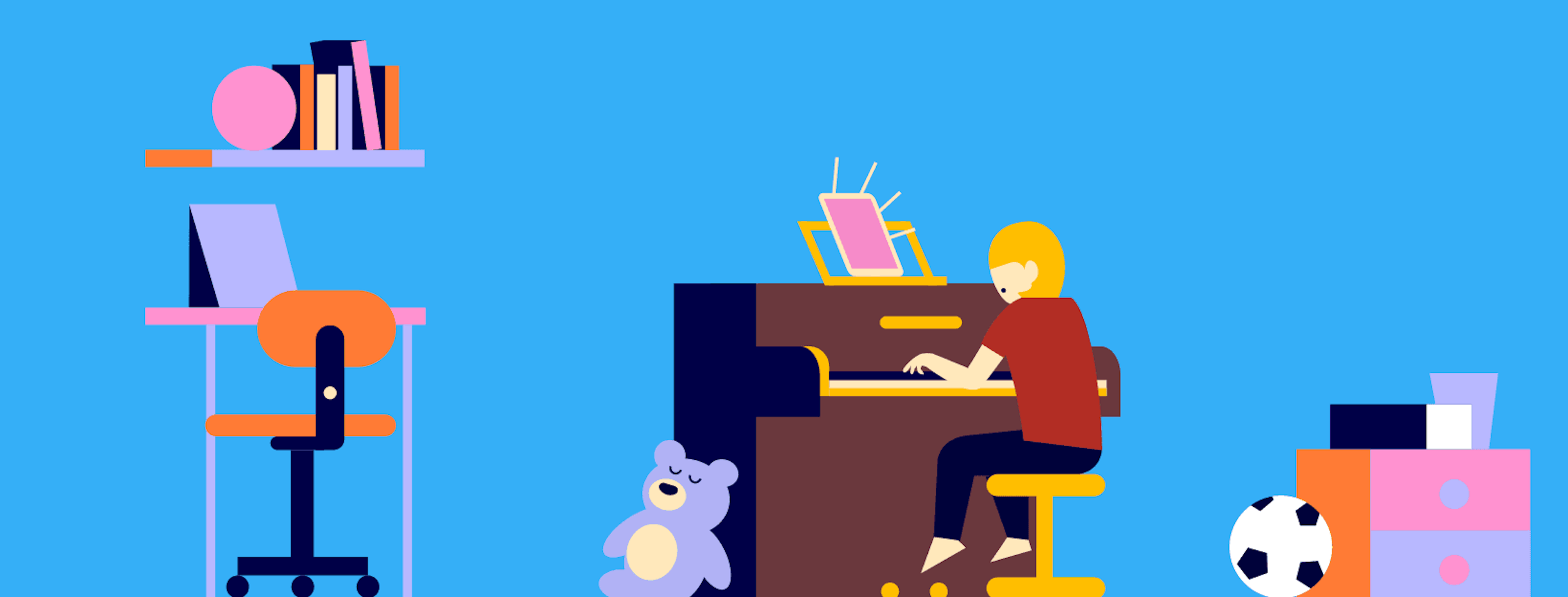5 Easy Steps to Relearn your Childhood Instrument
August 4, 2019
In this article, we will give you some tips to reconnect with your childhood instrument without pressure and start playing again

Have you, like many other amateur musicians, given up your instrument when entering the workforce, because you felt like you didn't have time anymore? After much consideration, you don’t want to let your music education go to waste, but you don’t know how to get back into playing music? Through this article, you will find some tips to regain your sensations et reconnect with you childhood instrument without pressure.
1. Be confident, don't underestimate yourself!
No doubt: You never start again from scratch. Your skills are still here, you are just out of shape. Of course you are a little rusty, but it’s quite normal. Don’t be discouraged at the beginning by your level that may have declined with years. Don’t forget that, with practice, it will come back to you and you will learn faster than before. With some determination and patience, you will regain your old sensations, and, why not, exceed the level you were at when you were young. Moreover, your memory may be your best partner when reading a music sheet and you will probably note that your old music skills are still there. With practice, your skills and reflexes will come back, just stay confident and your memory will do the rest.
2. Start slow.
Starting slowly will avoid feeling frustrated and being tempted to give up. If you have an old music sheet at home, try it. Otherwise, you can play some scales to recover your feelings. Keep in mind that your level is not the same, and the result might not be what you expect, but it’s part of the learning process. Audrey from Metronaut Team tips: « When I decided to pick my childhood flute back up after years without playing, I wasn’t sure what to do. But it turns out all I needed was to start: After playing a few notes to reconnect with the instrument, I chose a very simple music sheet I used to love and the pleasure came back very quickly. This first « quick win » and the joy I had playing music again is what helped me later to keep going and stay motivated while I was gradually tackling more difficult pieces and taking time to work on my technique again. » The most important is to reconnect with your playing sensation, your fingering and senses. Start with easy pieces, even if you move on quickly. Use a metronome, start slow and work gradually.
3. Practice regularly, even for short periods of time.
It is a fact that consistency is the key to success. You can’t recover your skills in one night, it’s essential to set practice times regularly, even if it’s brief. Ideally, play 20 to 30 minutes every day, it will be more effective than a 3 hours marathon once a week. Benefits from short sessions are more important, you will be more productive and your memory will retain more information.
4. Find the learning method that fits you.
If you have time (and money), the best way to learn is by taking some lessons with a professional, at home or remotely. Your coach will be able to evaluate your level and help you progress faster than if you are playing all alone. But thanks to internet, today it’s easy to find coaches, advices, musical practice apps or teachers’ videos on Youtube. For example, violinists can watch professorV on Youtube, an account with many violin lessons followed by 50 000 musicians. There are famous accounts for every instrument, like DrSelfridge’s channel, with 200 000 followers, where you can find flute or trumpet lessons easily and advices for all musicians.
If you are learning on your own, here is a tips: record yourself. It’s the best way to see your progression over the weeks and to improve by fixing your mistakes.
5. Set a goal and stick to it!
It’s essential to have a goal to reach in order to stay motivated. With a goal in mind, you will be more inclined to persevere and will see the results of your efforts when reaching it. Find a piece within your range but also challenging, that you like, and work on it until you master it, partially or (ideally) totally. It can help to set realistic goals during all your learning process.
Lastly, even if it seems logical to pick up your old instrument, don’t forget that it’s never too late to start learning a new one. In any case, your musical bases will be your best ally. The most important is to enjoy playing your instrument, then you will progress quickly. Don’t forget that music should first and foremost be a pleasure.